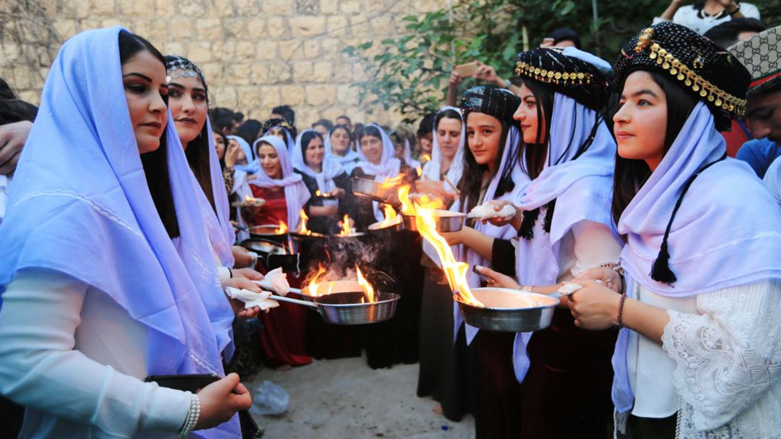KRG to begin distribution of financial assistance to Yezidi survivors
The initiative was approved in November last year when the KRG allocated funds to support 3,574 Yezidi survivors.

ERBIL (Kurdistan24) – The distribution of February's financial assistance to Yezidi survivors of ISIS atrocities will commence on Saturday, according to the Kurdistan Regional Government (KRG).
The initiative was approved in November last year when the KRG allocated funds to support 3,574 Yezidi survivors. Each beneficiary will receive a grant of 200,000 Iraqi dinars, whether residing within the Kurdistan Region or living elsewhere, with disbursements facilitated through their designated agents.
According to the distribution schedule, payments will be made from Saturday to Wednesday in Shekhan district, Lalish town, Sharya town, Khanke town, and Derabun village.
On Aug. 3, 2014, ISIS militants attacked the Yezidi-majority town of Sinjar and nearby villages, killing at least 5,000 Yezidis as well as enslaving about 6,000 women and minors. Around 400,000 others were displaced by the offensive.
Most of the religious community fled to the Kurdistan Region, while others resettled in neighboring countries or Western states.
Others were not as lucky and remained stranded in the war zone, where they experienced atrocities and mass executions at the hands of the extremist group for years. Militants subjected women and girls to sexual slavery and human trafficking, kidnapped children, forced religious conversions, and executed scores of men.
Over the nine years since then, much of Sinjar remains in rubble, and very few of its former residents have returned to their homes.
The Kurdish-Kurmanji-speaking community has suffered at least 72 genocides.
European countries, including Germany, have hosted a significant number of Yezidis fleeing violence. Nearly 10,000 Yezidis were killed or kidnapped by ISIS.
The United Nations later recognized the atrocities against the Yezidi people as genocide.
More than 3,500 Yezidis have been rescued so far, according to the KRG.
ISIS, or the Islamic State of Iraq and Syria, is a militant extremist group that follows a fundamentalist, Salafi jihadist doctrine of Sunni Islam. It expanded its influence in Syria during the Syrian Civil War. The group is known for its brutal tactics, including mass executions, and aims to establish a caliphate governed by strict Sharia law.